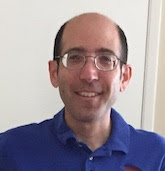My perspective concerning the situation in the public schools displays a measure of cynicism. The reasons for this are numerous, and run far deeper than budget cuts and limited teacher openings. School systems have for over 10 years complained of shortages of qualified math (and science) teachers. This phenomenon is in fact not the problem, but rather a symptom of the problems in today's public schools.
A mathematician such as myself, with a long family history of scholars and educators, may initially find the prospect of working in the public schools to be attractive. He expects that his innate mathematical talent will be appreciated by many of the students, and that the kids will respect his consistent enforcement of his behavioral standards in the classroom. Given that school systems complain of shortages of math teachers, he expects school principals will be highly motivated to support him as a teacher, and certainly will want to award him tenure at the end of his second or third year in the district. He naturally intends to grow as a teacher over the years, and- being tenured- will be able to provide for his family from that point on.
When he finally completes the credential program and enters the classroom, he faces the reality of today's public schools. Many students appreciate his mathematical knowledge and talent, but others would prefer not only to avoid learning, but also to disrupt the class and prevent all of the others from learning. The mathematician is initially patient, but soon needs to discipline the non-compliant students. Now the mathematician's personality becomes a liability. In most cases, the administrators do not support the mathematician's actions, but rather blame him for some of the students' disruptive behavior! It is not the kids' fault for misbehaving; rather, the teacher is responsible for not being able to relate well to these kids and- by establishing rapport with all of them- inspire them to not misbehave. The new student-centered learning environment requires the teacher to mould his expectations to the kids' wishes. Many kids are rude and discourteous, seeing nothing wrong in blatantly talking to classmates when the teacher is talking. Teachers who actually follow school policy prohibiting use of cell phones, headphones, and the like in class are considered "uncool" and overly strict by kids, who respond by being even more disruptive. Consequences for repeated disruption or even severe misbehaviors are usually light, and the kids are well aware of this. The inmates are now running the asylum! Only a master in the area of social interactions can manage these kids, and the mathematician- who as I indicated previously is typically deficient in this area- will find this a struggle. Even as he exerts his maximum available energy into running his classes, and several off-duty hours per day preparing for classes, grading, contacting parents, meeting parents, tutoring students and/or holding after-school detention, he finds his efforts are unappreciated by many students, their parents, and many administrators. He now knows the reason that 50% of teachers leave this stressful profession- often after such stress affects their health- within 5 years. (From personal experience, nearly everyone in the teaching credential program is initially energetic, altruistic, and optimistic as they prepare to enter the field of education). It is also evident why school districts face a shortage of qualified math teachers. Mathematicians and scientists are not desired in the classroom. Instead, administrators seek teachers who can relate well to and be accepted by their kids, including the difficult kids who have no desire to learn. Oh, by the way, we cannot use the term "bad kids"; rather, those who are a challenge are classified as "good kids who make bad choices." This follows even though the presidential and vice-presidential candidates in 2008 freely made reference to "bad teachers" who should not be in the classroom. What administrators seek are not masters of the subject matter, but rather masters of socialization and interaction with their students. Subject matter mastery is far less important, leading to mediocre quality of education. Future innovation in this country- which would greatly help our economy in the long term- is impeded, as both administrators and politicians are focused on the short-term at the expense of the long-term.
Wednesday, March 17, 2010
Subscribe to:
Post Comments (Atom)

Excellent pieces. Keep writing such kind of information on your page.
ReplyDeleteIm really impressed by it.
Hey there, You have done an incredible job. I'll definitely digg it and in my opinion recommend to my friends. I am confident they will be benefited from this website.
my web page: timex ironman